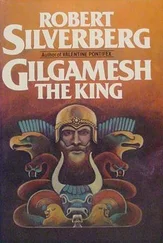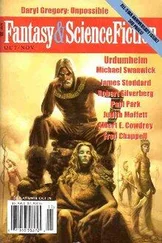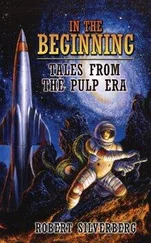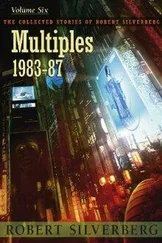Robert Silverberg - Thomas the Proclaimer
Здесь есть возможность читать онлайн «Robert Silverberg - Thomas the Proclaimer» весь текст электронной книги совершенно бесплатно (целиком полную версию без сокращений). В некоторых случаях можно слушать аудио, скачать через торрент в формате fb2 и присутствует краткое содержание. Год выпуска: 2012, ISBN: 2012, Издательство: Subterranean Press, Жанр: Фантастика и фэнтези, на английском языке. Описание произведения, (предисловие) а так же отзывы посетителей доступны на портале библиотеки ЛибКат.
- Название:Thomas the Proclaimer
- Автор:
- Издательство:Subterranean Press
- Жанр:
- Год:2012
- ISBN:978-1-59606-509-3
- Рейтинг книги:5 / 5. Голосов: 1
-
Избранное:Добавить в избранное
- Отзывы:
-
Ваша оценка:
- 100
- 1
- 2
- 3
- 4
- 5
Thomas the Proclaimer: краткое содержание, описание и аннотация
Предлагаем к чтению аннотацию, описание, краткое содержание или предисловие (зависит от того, что написал сам автор книги «Thomas the Proclaimer»). Если вы не нашли необходимую информацию о книге — напишите в комментариях, мы постараемся отыскать её.
Thomas the Proclaimer — читать онлайн бесплатно полную книгу (весь текст) целиком
Ниже представлен текст книги, разбитый по страницам. Система сохранения места последней прочитанной страницы, позволяет с удобством читать онлайн бесплатно книгу «Thomas the Proclaimer», без необходимости каждый раз заново искать на чём Вы остановились. Поставьте закладку, и сможете в любой момент перейти на страницу, на которой закончили чтение.
Интервал:
Закладка:
Nothing?
Out of Nevada came Thomas, shaggy Thomas, Thomas the Proclaimer, rising above the slot machines and the roulette wheels to cry, If ye have faith, ye shall be saved! An anti-Apocalyptist prophet, no less, whose message was that civilization still might be preserved, that it was not yet too late. The voice of hope, the enemy of entropy, the new Apostle of Peace. Though to people like me he looked just as wild-eyed and hairy and dangerous and terrifyingly psychotic as the worshippers of the holocaust, for he, like the Apocalyptists, dealt in forces operating outside the realm of sanity. By rights he should have come out of the backwoods of Arkansas or the crazier corners of California, but he didn’t, he was a desert rat, a Nevadan, a sand-eating latter-day John the Baptist. A true prophet for our times, too: seedy, disreputable, a wine-swiller, a cynic. Capable of beginning a global telecast sermon with a belch. An ex-soldier who had happily napalmed whole provinces during the Brazilian Pacification Program. A part-time dealer in bootlegged hallucinogens. An expert at pocket-picking and computer-jamming. He had gone into the evangelism business because he thought he could make an easy buck that way, peddling the Gospels and appropriating the collection box, but a funny thing had happened to him, he claimed: he had seen the Lord, he had discovered the error of his ways, he had become inflamed with righteousness. Hiding not his grimy past, he now offered himself as a walking personification of redemption: Look ye, if I can be saved from sin, there’s hope for everyone! The media picked him up. That magnificent voice of his, that great mop of hair, those eyes, that hypnotic self-confidence—perfect. He walked from California to Florida to proclaim the coming millennium. And gathered followers, thousands, millions, all those who weren’t yet ready to let Armageddon begin, and he made them pray and pray and pray; he held revival meetings that were beamed to Karachi and Katmandu and Addis Ababa and Shanghai, he preached no particular theology and no particular scripture, but only a smooth ecumenical theism that practically anybody could swallow, whether he be Confucianist or Moslem or Hindu. Listen, Thomas said, there is a God, some kind of all-powerful being out there whose divine plan guides the universe, and He watches over us, and don’t you believe otherwise! And He is good and will not let us come to harm if we hew to His path. And He has tested us with all these troubles, in order to measure the depth of our faith in Him. So let’s show Him, brethren! Let’s all pray together and send up a great shout unto Him! For He would certainly give a Sign, and the unbelievers would at last be converted, and the epoch of purity would commence. People said, Why not give it a try? We’ve got a lot to gain and nothing to lose. A vulgar version of the old Pascal wager: if He’s really there, He may help us, and if He’s not, we’ve only wasted a little time. So the hour of beseeching was set.
In faculty circles we had a good deal of fun with the whole idea, we brittle worldly rational types, but sometimes there was a nervous edge to our jokes and a forced heartiness to our laughter, as if some of us suspected that Pascal might have been offering pretty good odds, or that Thomas might just have hit on something. Naturally I was among the skeptics, though as usual I kept my doubts to myself. (The lesson learned so long ago, the narrow escape from the Irish lads.) I hadn’t really paid much attention to Thomas and his message, any more than I did to football scores or children’s video programs: not my sphere, not my concern. But as the day of prayer drew near, the old temptation beset me. Give in at last, Gifford. Bow your head and offer homage. Even if He’s the myth you’ve always known He is, do it. Do it! I argued with myself. I told myself not to be an idiot, not to yield to the age-old claims of superstition. I reminded myself of the holy wars, the Inquisition, the lascivious Renaissance popes, all the crimes of the pious. So what, Gifford? Can’t you be an ordinary humble God-fearing human being for once in your life? Down on your knees beside your brethren? Read your Pascal. Suppose He exists and is listening, and suppose your refusal is the one that tips the scales against mankind? We’re not asking so very much. Still I fought the sly inner voice. To believe is absurd, I cried. I must not let despair stampede me into the renunciation of reason, even in this apocalyptic moment. Thomas is a cunning ruffian and his followers are hysterical grubby fools. And you’re an arrogant elitist, Gifford. Who may live long enough to repent his arrogance. It was psychological warfare, Gifford vs. Gifford, reason vs. faith.
In the end reason lost. I was jittery, off balance, demoralized. The most astonishing people were coming out in support of Thomas the Proclaimer, and I felt increasingly isolated, a man of ice, heart of stone, the village atheist scowling at Christmas wreaths. Up until the final moment I wasn’t sure what I was going to do, but then the hour struck and I found myself in my study, alone, door locked, safely apart from wife and children—who had already, all of them, somewhat defiantly announced their intentions of participating—and there I was on my knees, feeling foolish, feeling preposterous, my cheeks blazing, my lips moving, saying the swords. Saying the words. Around the world the billions of believers prayed, and I also. I too prayed, embarrassed by my weakness, and the pain of my shame was a stone in my throat.
And the Lord heard us, and He gave a Sign. And for a day and a night (less 1 × 12 –4sidereal day) the Earth moved not around the sun, neither did it rotate. And the laws of momentum were confounded, as was I. Then Earth again took up its appointed course, as though nothing out of the ordinary had occurred. Imagine my chagrin. I wish I knew where to find those Irish boys. I have some apologies to make.
Four
Thomas Preaches in the Marketplace
I hear what you’re saying. You tell me I’m a prophet. You tell me I’m a saint. Some of you even tell me I’m the Son of God come again. You tell me I made the sun stand still over Jerusalem. Well, no, I didn’t do that, the Lord Almighty did that, the Lord of Hosts. Through His divine Will, in response to your prayers. And I’m only the vehicle through which your prayers were channeled. I’m not any kind of saint, folks. I’m not the Son of God reborn, or any of the other crazy things you’ve been saying I am. I’m only Thomas.
Who am I?
I’m just a voice. A spokesman. A tool through which His will was made manifest. I’m not giving you the old humility act, friends, I’m trying to make you see the truth about me.
Who am I?
I’ll tell you who I was, though you know it already. I was a bandit, I was a man of evil, I was a defiler of the law. A killer, a liar, a drunkard, a cheat! I did what I damned pleased. I was a law unto myself. If I ever got caught, you bet I wouldn’t have whined for mercy. I’d have spit in the judge’s face and taken my punishment with my eyes open. Only I never got caught, because my luck was running good and because this is a time when a really bad man can flourish, when the wicked are raised high and the virtuous are ground into the mud. Outside the law, that was me! Thomas the criminal! Thomas the brigand, thumbing his nose! Doing bad was my religion, all the time—when I was down there in Brazil with those flamethrowers, or when I was free-lancing your pockets in our cities, or when I was ringing up funny numbers on the big computers. I belonged to Satan if ever a man did, that’s the truth, and then what happened? The Lord came along to Satan and said to him, Satan, give me Thomas, I have need of him. And Satan handed me over to Him, because Satan is God’s servant too.
Читать дальшеИнтервал:
Закладка:
Похожие книги на «Thomas the Proclaimer»
Представляем Вашему вниманию похожие книги на «Thomas the Proclaimer» списком для выбора. Мы отобрали схожую по названию и смыслу литературу в надежде предоставить читателям больше вариантов отыскать новые, интересные, ещё непрочитанные произведения.
Обсуждение, отзывы о книге «Thomas the Proclaimer» и просто собственные мнения читателей. Оставьте ваши комментарии, напишите, что Вы думаете о произведении, его смысле или главных героях. Укажите что конкретно понравилось, а что нет, и почему Вы так считаете.












